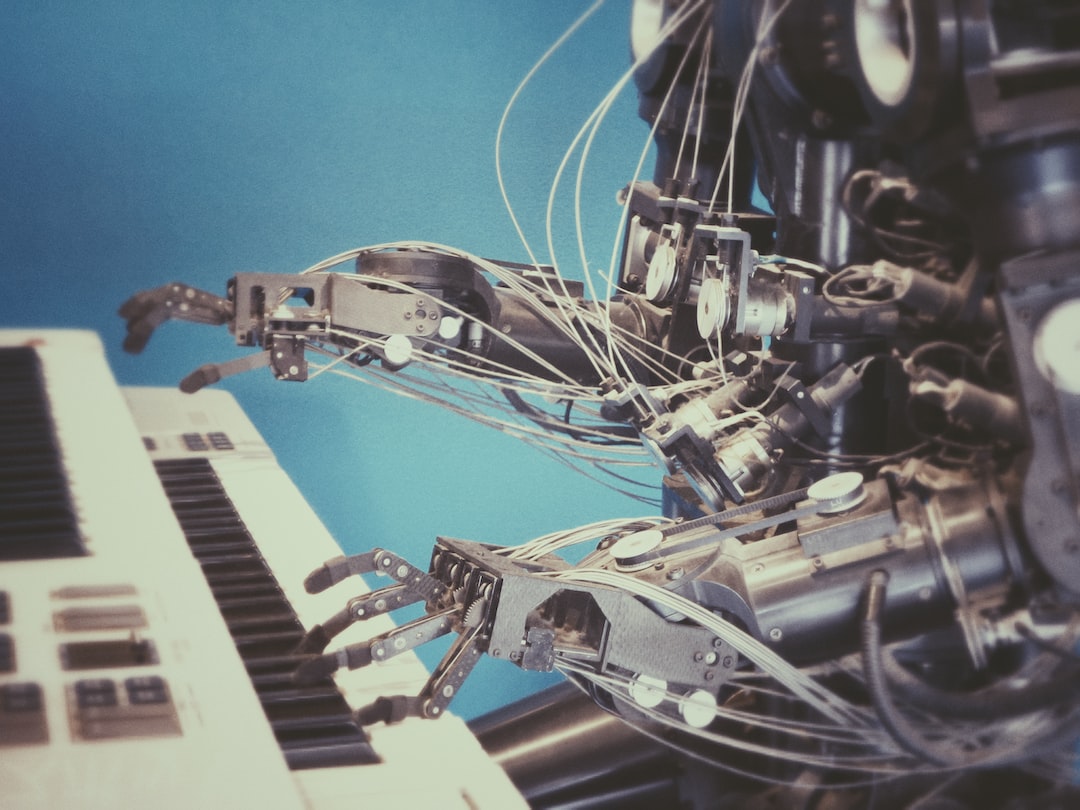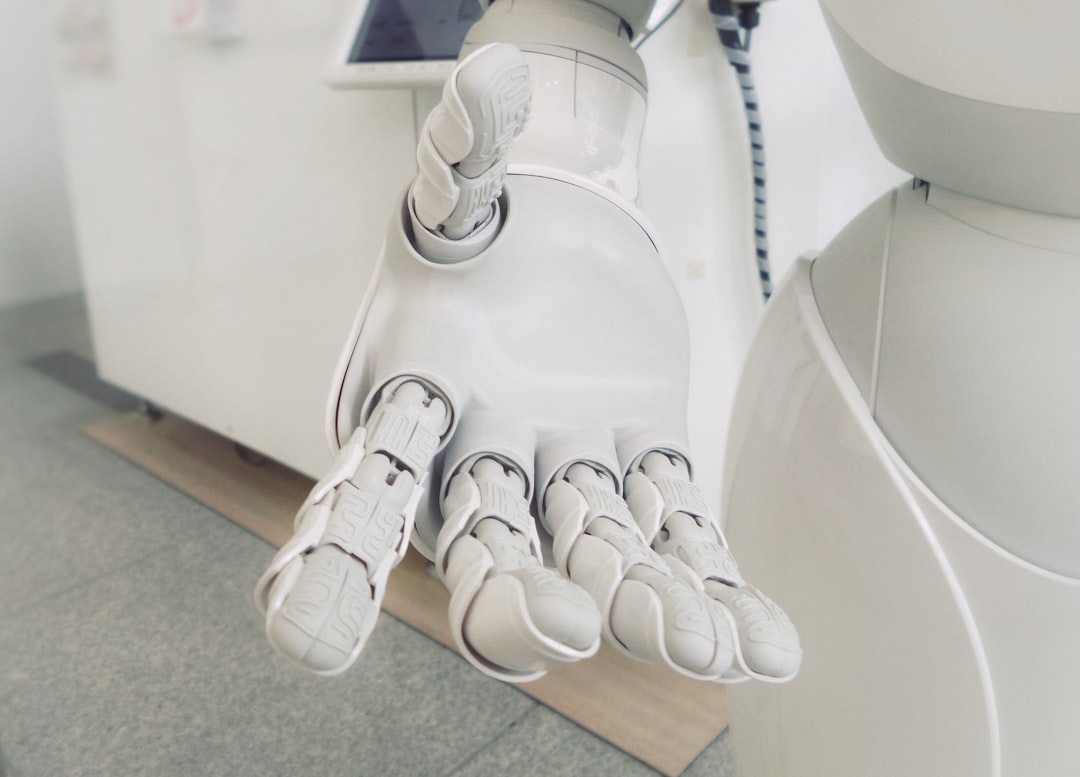The world of startups is constantly evolving and changing, and one of the biggest changes in recent years has been the rise of AI and machine learning. These technologies are being utilized across a wide variety of industries and business functions, from customer service to data analysis to cybersecurity.
AI and machine learning algorithms are designed to learn from data, so the more data they are fed, the more they can learn and improve their predictions and decision-making capabilities. With the advancements in big data analytics and cloud computing, startups are now able to collect, store and process vast amounts of data in real-time, allowing them to leverage these technologies to gain a competitive advantage over their rivals.
In today’s fast-paced business environment, startups need to be able to quickly identify trends, make timely decisions and respond rapidly to changing market conditions. By incorporating AI and machine learning into their operations, startups are better able to analyze data, automate processes, and make more informed decisions, all of which can give them a competitive edge.
In this blog series, we will explore some of the key ways that AI and machine learning are being used by startups to drive growth and improve performance. From intelligent chatbots to personalized healthcare, these technologies are transforming the way we live, work and do business, and we are just scratching the surface of what is possible. So buckle up and let’s dive into the exciting world of AI and machine learning in startup world.
Intelligent Chatbots – Empowering Businesses to Enhance Customer Experience
The rise of artificial intelligence and machine learning has ushered in new opportunities for businesses to improve their customer experience. One of the most significant advancements in this field has been the development of intelligent chatbots. These chatbots are computer programs designed to interact with customers in a conversational manner, delivering personalized responses that mimic human interaction.
Intelligent chatbots have become a popular tool for businesses to automate customer service, sales and marketing, and even human resources. They can handle a wide range of tasks, from answering frequently asked questions to taking orders, scheduling appointments, and even resolving simple customer issues.
One of the main advantages of intelligent chatbots is that they are available 24/7, providing customers with round-the-clock support. This means that businesses can operate more efficiently, without having to worry about the cost and logistics of hiring additional customer support staff. Chatbots can handle multiple conversations at once, providing instant responses to customer queries and ultimately improving response times.
But the benefits of chatbots extend beyond simple cost savings and efficiency gains. By using machine learning algorithms and natural language processing, chatbots can learn from customer interactions, improving their responses and becoming more accurate over time. This means that the more a chatbot interacts with customers, the better it becomes at understanding their needs and providing personalized solutions.
Moreover, chatbots can be integrated with a range of other technologies, such as enterprise software, social media platforms, and even virtual reality. This means that businesses can create a unified customer experience across multiple channels, providing a consistent brand image and reinforcing customer loyalty.
In conclusion, the rise of intelligent chatbots has revolutionized the way businesses interact with their customers. These powerful tools empower companies to enhance their customer experience, while also boosting efficiency and lowering costs. As artificial intelligence and machine learning continue to advance, we can expect to see even more exciting developments in this field, paving the way for a new era of AI and machine learning-powered startups.
This means that businesses can operate more efficiently, without having to worry about the cost and logistics of hiring additional customer support staff.
Predictive Analytics – Harnessing the Power of Data to Make Smarter Business Decisions
In today’s technology-driven world, data has become the kingpin of business success. In the era of big data, companies that can process, analyze, and interpret data efficiently can achieve significant success. Machine learning and artificial intelligence have enabled businesses to harness the power of big data to make better decisions, and predictive analytics is at the forefront of this revolution.
Predictive analytics is a form of advanced analytics that uses historical data, statistical algorithms, and machine learning techniques to analyze and predict future trends and outcomes. It involves data mining, machine learning, and artificial intelligence to make predictions and guide decision-making in various industries. Predictive analytics uses a range of statistical techniques such as regression analysis, decision trees, neural networks, and time-series analysis to identify patterns in data and make predictions.
Businesses can use predictive analytics to determine patterns and uncover insights that would otherwise go unnoticed. It provides answers to complex problems, revealing the likelihood of customer interactions and outcomes based on past behavior. Predictive analytics has enormous potential to solve many problems facing businesses. It enables businesses to predict customer churn, forecast demand, optimize inventory, identify fraud, and improve operations.
Predictive analytics has made significant breakthroughs in several industries such as healthcare, finance, retail, and energy. In healthcare, predictive analytics allows doctors to predict disease progression, design personalized treatments, and improve patient outcomes. In finance, predictive analytics is used for fraud detection, predicting the performance of stocks and making real-time investment decisions. In retail, predictive analytics helps businesses to optimize pricing, design targeted marketing campaigns, and improve the customer experience. In energy, it helps businesses to predict usage patterns, optimize grid performance, and forecast equipment failure.
In conclusion, predictive analytics is transforming the way businesses operate, especially in the startup world. Its ability to provide insights into complex problems and predict outcomes with unprecedented accuracy has made it a valuable tool in business decision-making. Its potential to uncover valuable insights and provide a competitive edge has made it one of the most essential tools for businesses today. Startups that can master predictive analytics will not only survive but thrive in today’s highly competitive business environment.
In energy, it helps businesses to predict usage patterns, optimize grid performance, and forecast equipment failure.
Autonomus Vehicles – Revolutionizing the Way We Travel and Commute
Autonomous vehicles, also known as self-driving cars, are becoming the next big step in the transportation industry. These vehicles use a combination of advanced sensors and machine learning algorithms to operate without human intervention. This technology has the potential to revolutionize the way we travel and commute, bringing numerous benefits to society.
One of the most significant benefits of autonomous vehicles is safety. With self-driving cars, we can eliminate the risk of human error, which is responsible for a vast majority of car accidents. According to the World Health Organization (WHO), over 1.3 million people die in car accidents every year. With the introduction of self-driving cars, the number of fatalities and injuries caused by car crashes could be dramatically reduced.
In addition to safety, autonomous vehicles can also save time and increase productivity. With self-driving cars, people can use their time more effectively during their commutes. They can work, rest, or even catch up on their favorite TV shows, without having to worry about driving. This increased productivity could have a significant impact on the economy, as people will have more time to work and be productive.
Another benefit of self-driving cars is environmental sustainability. With autonomous vehicles, we can optimize traffic flow and reduce traffic congestion, which is a significant contributor to air pollution. In addition, self-driving cars are designed to be more fuel-efficient, reducing the carbon footprint and helping to combat climate change.
In conclusion, autonomous vehicles have the potential to change the way we travel and commute, making our lives safer, more productive, and more environmentally sustainable. While there are still some challenges to overcome, such as legislation, privacy concerns, and technical issues, the future of autonomous vehicles looks bright. It is only a matter of time before they become a common feature on our roads, and we can expect to see significant benefits from this technology in the years to come.
With self-driving cars, people can use their time more effectively during their commutes.
Personalized Healthcare – Enhancing Diagnosis, Treatment and Monitoring of Diseases
Artificial intelligence and machine learning have started revolutionizing the healthcare industry in unprecedented ways. With the help of these cutting-edge technologies, it is now possible to analyze vast amounts of patient data and provide personalized healthcare solutions for individual patients. This includes AI-assisted diagnosis, treatment, and monitoring of chronic diseases, among others.
Personalized healthcare powered by AI and machine learning has the potential to significantly enhance patient outcomes by providing faster and more accurate diagnosis, which in turn, enables more effective treatment plans. By analyzing data such as genetic information, symptoms, medical history, and lifestyle factors, doctors and healthcare providers can get a better understanding of each patient’s unique situation and provide individualized treatment plans.
AI and machine learning have already made a significant impact in healthcare through approaches such as predictive analytics and disease monitoring. One example is the use of AI-powered chatbots to improve mental health diagnostics and treatment, which has been found to be more accurate and effective than traditional methods. Similarly, machine learning algorithms have been developed to detect skin diseases with much higher accuracy than the human eye.
Personalized healthcare also involves the use of wearables and other sensors to monitor a patient’s health in real-time. The data collected by these devices can be analyzed using AI and machine learning algorithms to provide early warnings of potential health problems and enable early intervention. For example, an AI-powered wearable device can detect early signs of cardiovascular disease and alert the patient and healthcare provider to take action.
In summary, the integration of AI and machine learning in healthcare has opened up a world of possibilities for personalized healthcare solutions. By analyzing patient data and creating individualized treatment plans, AI-powered healthcare has the potential to significantly improve patient outcomes and revolutionize the healthcare industry.
With the help of these cutting-edge technologies, it is now possible to analyze vast amounts of patient data and provide personalized healthcare solutions for individual patients.
Cybersecurity – Integrating AI and Machine Learning to Create Advanced Security Systems
In today’s world, cybersecurity has become a top priority for individuals and businesses alike. With an increasing number of cyber threats emerging every day, it is essential to have advanced security systems that are capable of identifying and mitigating potential risks.
Artificial Intelligence (AI) and Machine Learning (ML) have become indispensable tools in the field of cybersecurity, providing the ability to detect and prevent cyber-attacks before they cause any harm. AI and ML systems work by constantly learning about potential threats, detecting patterns, and identifying anomalies in network traffic or user behavior.
These advanced security systems can analyze vast amounts of data in real-time, making it possible to detect and respond to potential cyber threats quickly. They are also capable of predicting and preventing future attacks by learning from past incidents, making them incredibly effective against even the most sophisticated cyber-attacks.
Integrating AI and ML with traditional security systems such as firewalls, antivirus software, and intrusion detection systems can provide a comprehensive security framework capable of identifying and responding to cyber-attacks quickly.
Another significant advantage of using AI and ML powered security systems is their ability to adapt to new and emerging threats. Unlike traditional security systems that require manual updates, AI and ML systems can learn and adapt to new threats in real-time, making them highly effective against even the most advanced cyber-attacks.
However, despite their effectiveness, AI and ML powered security systems are not immune to cyber-attacks themselves. Therefore, it is crucial to ensure that these systems are secure and regularly updated to prevent potential attacks from exploiting vulnerabilities in the system.
In conclusion, AI and ML have become critical tools in the fight against cyber threats, providing businesses and individuals with advanced security systems capable of detecting, preventing, and responding to potential attacks quickly. With continued advancements in AI and ML technology, we can expect further improvements in the field of cybersecurity, allowing us to stay ahead of cyber threats and protect our digital assets.
They are also capable of predicting and preventing future attacks by learning from past incidents, making them incredibly effective against even the most sophisticated cyber-attacks.
Conclusion: The Future of AI and Machine Learning Powered Startups
As we come to the end of our discussion of the rise of AI and machine learning in the world of startups, it’s clear that these technologies are poised to revolutionize the business landscape in ways that we can’t even fully comprehend yet. From intelligent chatbots that can streamline customer service operations, to autonomous vehicles that promise to transform the way we travel and commute, to personalized healthcare that can enhance diagnosis and treatment, there are countless possibilities for these technologies to transform the world around us.
Of course, with these opportunities come challenges as well. As startups continue to explore the possibilities of AI and machine learning, there will be ethical considerations to address, as well as concerns about privacy and security. However, with the right approach and the right solutions in place, we believe that the potential benefits of these technologies will far outweigh the risks.
In fact, we believe that the businesses that will thrive in the years to come will be those that embrace the power of AI and machine learning, and use these technologies to their fullest potential. By doing so, they’ll be able to make smarter, more data-driven decisions, deliver better customer experiences, and create products and services that are truly game changers.
Overall, we believe that the future of AI and machine learning powered startups is bright, and we can’t wait to see what amazing innovations emerge in the years ahead. As always, we’ll be keeping a close eye on the latest developments in these exciting fields, and we look forward to sharing our insights and perspectives with you. Thanks for joining us on this journey!





